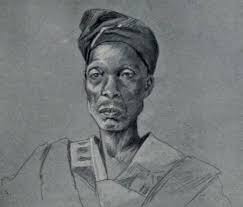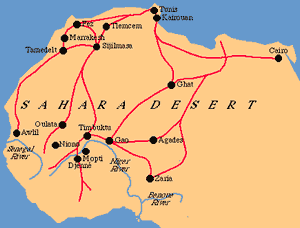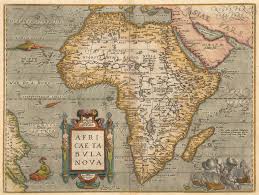The True History of Ilorin

The True History of Ilorin
Explore the true history of Ilorin, a city shaped by Yoruba roots, Fulani influence, and a unique blend of cultures that define its rich heritage.
Ilorin, a city steeped in rich history and cultural significance, traces its origins back to the forest of Oko-Erin. This area, known as the “elephant forest,” was home to many elephants and became a haven for brave and powerful hunters. Among the early hunters who explored this forest was Òjó Oníṣekúṣe [Ojo the Promiscuous], a fearless hunter from Ijesha. Later, Ẹ̀mìǹlá, another skilled hunter from Ìlá-Ọ̀ràngún, joined him in Oko-Erin. Despite their prowess, neither Òjó nor Ẹ̀mìǹlá settled permanently in the forest, returning periodically to their families.
Oláderin: The First Settler
It was Oláderin, a hunter from Òyò Alaafin, who became the first permanent settler in Oko-Erin. As the leader of the elephant hunters, Oláderin built a hut that became a central hub for other hunters. His legendary prowess and the fear he inspired among both humans and animals earned him great respect. Oláderin also possessed a mystical pot of concoction that allowed him to transform into any animal he desired. This earned him the name “Olá di Erin” [Oladerin, the one who becomes an elephant].
One of Oláderin’s enduring legacies was a sharpening stone at his hut, which hunters used to sharpen their machetes. When heading to Oláderin’s hut, people would say, “Mò̀ ń lọ́ lọ irin mi lọ́dọ̀ Oláderin” [I’m going to sharpen my machete at Oláderin’s place]. Over time, this sharpening stone became known as “Ìlọ̀ irin” [a sharpener], and the city of Ilorin derived its name from this tool. Remarkably, the stone still resides at the Bámidẹ́lẹ́ house in Ilorin.
The Expansion of Ilorin
After Òjó Oníṣekúṣe fled Oko-Erin due to his promiscuity and Ẹ̀mìǹlá returned to Ila-Orangun, more settlers began to arrive. People from villages around Òyò came to live with Oláderin, and Ilorin started to expand. Oláderin became the first chief (“baálẹ̀”) of Ilorin. At this time, Ilorin was predominantly populated by people of Òyò origin.
After Oláderin’s death, his son Pàsín became the second baálẹ̀. During his reign, Pàsín opposed the tyrannical actions of Bashọ̀run Gáà in Òyò, which ultimately led to Pàsín’s death at the hands of Bashọ̀run Gáà. Pàsín’s son, Àlùgbìn, succeeded him, and under his rule, Ilorin grew into a significant town. After Àlùgbìn’s demise, his son Àfọ̀njá became the new baálẹ̀, marking a transformative period in Ilorin’s history.
Àfọ̀njá: The Warlord
Àfọ̀njá, a courageous and formidable warlord, became baálẹ̀ during the reign of Alaafin Abíòdún Adégòòlú in the Òyò Kingdom. When Alaafin Abíòdún passed, Àfọ̀njá rose to prominence, waging wars against neighboring villages and consolidating power. His dominance was such that many people feared Àfọ̀njá more than the Alaafin himself. His ambition and influence, however, sowed seeds of discord in the Òyò Kingdom.
When Alaafin Aóḷẹ̀ Arógánganlóyẹ̀ ascended the throne, tensions between the Alaafin and Àfọ̀njá escalated. The Alaafin’s refusal to send Àfọ̀njá to war—a customary practice to test the strength of a new Kakanfo—intensified their rivalry. A conspiracy was hatched to send Àfọ̀njá on an impossible mission to wage war against Iwere, a fortified town. However, a loyalist revealed the plan to Àfọ̀njá, who turned against the Alaafin’s armies, leading to a series of events that forced Alaafin Aóḷẹ̀ to commit suicide after cursing the Yoruba race.
The Betrayal and Downfall of Àfọ̀njá
Following Alaafin Aóḷẹ̀’s demise, Àfọ̀njá sought to establish his authority over the entire Yoruba land. He invited Álíímí, a Fulani Islamic scholar, and Solágbẹ̀rú, a wealthy Muslim friend, to Ilorin to fortify his ambitions. While Àfọ̀njá’s Hausa and Fulani allies initially supported his cause, their loyalty waned over time. Álíímí, who had become influential among the Fulani and Hausa soldiers, conspired to overthrow Àfọ̀njá.
Despite warnings from his allies, Àfọ̀njá underestimated the threat. When he finally acted against the Fulani forces, it was too late. In the ensuing battle, Àfọ̀njá and his Yoruba warriors were defeated. Àfọ̀njá died standing upright, riddled with arrows, a testament to his indomitable spirit. After his death, Álíímí’s forces solidified control over Ilorin.
The Rise of Álíímí and the Transformation of Ilorin
Álíímí, with the support of his Hausa and Fulani allies, assumed leadership in Ilorin, marking the city’s transition from Yoruba rule to Fulani dominance. Solágbẹ̀rú, who had distanced himself from Àfọ̀njá’s conflicts, was also eliminated, ensuring no opposition to Fulani rule.
Ilorin’s history, rooted in bravery, betrayal, and ambition, remains a poignant reminder of the complexities of leadership and the interplay of power dynamics in shaping a city’s destiny.


